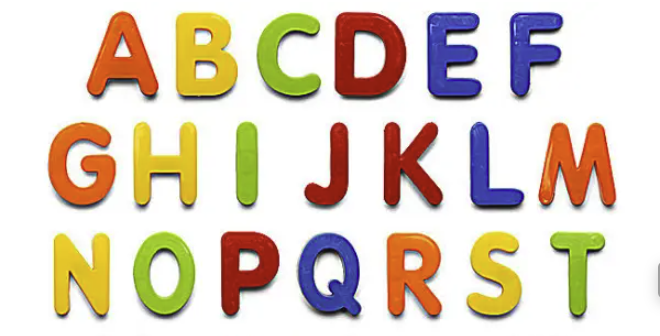一个实用的工具类:How To: Generate a Random Password (C#/VB.NET)
时间:2010-10-14 来源:追梦
 C# Codes
///////////////////////////////////////////////////////////////////////////////
C# Codes
///////////////////////////////////////////////////////////////////////////////// SAMPLE: Generates random password, which complies with the strong password
// rules and does not contain ambiguous characters.
//
// To run this sample, create a new Visual C# project using the Console
// Application template and replace the contents of the Class1.cs file with
// the code below.
//
// THIS CODE AND INFORMATION IS PROVIDED "AS IS" WITHOUT WARRANTY OF ANY KIND,
// EITHER EXPRESSED OR IMPLIED, INCLUDING BUT NOT LIMITED TO THE IMPLIED
// WARRANTIES OF MERCHANTABILITY AND/OR FITNESS FOR A PARTICULAR PURPOSE.
//
// Copyright (C) 2004 Obviex(TM). All rights reserved.
//
using System;
using System.Security.Cryptography;
/// <summary>
/// This class can generate random passwords, which do not include ambiguous
/// characters, such as I, l, and 1. The generated password will be made of
/// 7-bit ASCII symbols. Every four characters will include one lower case
/// character, one upper case character, one number, and one special symbol
/// (such as '%') in a random order. The password will always start with an
/// alpha-numeric character; it will not start with a special symbol (we do
/// this because some back-end systems do not like certain special
/// characters in the first position).
/// </summary>
public class RandomPassword
{
// Define default min and max password lengths.
private static int DEFAULT_MIN_PASSWORD_LENGTH = 8;
private static int DEFAULT_MAX_PASSWORD_LENGTH = 10;
// Define supported password characters divided into groups.
// You can add (or remove) characters to (from) these groups.
private static string PASSWORD_CHARS_LCASE = "abcdefgijkmnopqrstwxyz";
private static string PASSWORD_CHARS_UCASE = "ABCDEFGHJKLMNPQRSTWXYZ";
private static string PASSWORD_CHARS_NUMERIC= "23456789";
private static string PASSWORD_CHARS_SPECIAL= "*$-+?_&=!%{}/";
/// <summary>
/// Generates a random password.
/// </summary>
/// <returns>
/// Randomly generated password.
/// </returns>
/// <remarks>
/// The length of the generated password will be determined at
/// random. It will be no shorter than the minimum default and
/// no longer than maximum default.
/// </remarks>
public static string Generate()
{
return Generate(DEFAULT_MIN_PASSWORD_LENGTH,
DEFAULT_MAX_PASSWORD_LENGTH);
}
/// <summary>
/// Generates a random password of the exact length.
/// </summary>
/// <param name="length">
/// Exact password length.
/// </param>
/// <returns>
/// Randomly generated password.
/// </returns>
public static string Generate(int length)
{
return Generate(length, length);
}
/// <summary>
/// Generates a random password.
/// </summary>
/// <param name="minLength">
/// Minimum password length.
/// </param>
/// <param name="maxLength">
/// Maximum password length.
/// </param>
/// <returns>
/// Randomly generated password.
/// </returns>
/// <remarks>
/// The length of the generated password will be determined at
/// random and it will fall with the range determined by the
/// function parameters.
/// </remarks>
public static string Generate(int minLength,
int maxLength)
{
// Make sure that input parameters are valid.
if (minLength <= 0 || maxLength <= 0 || minLength > maxLength)
return null;
// Create a local array containing supported password characters
// grouped by types. You can remove character groups from this
// array, but doing so will weaken the password strength.
char[][] charGroups = new char[][]
{
PASSWORD_CHARS_LCASE.ToCharArray(),
PASSWORD_CHARS_UCASE.ToCharArray(),
PASSWORD_CHARS_NUMERIC.ToCharArray(),
PASSWORD_CHARS_SPECIAL.ToCharArray()
};
// Use this array to track the number of unused characters in each
// character group.
int[] charsLeftInGroup = new int[charGroups.Length];
// Initially, all characters in each group are not used.
for (int i=0; i<charsLeftInGroup.Length; i++)
charsLeftInGroup[i] = charGroups[i].Length;
// Use this array to track (iterate through) unused character groups.
int[] leftGroupsOrder = new int[charGroups.Length];
// Initially, all character groups are not used.
for (int i=0; i<leftGroupsOrder.Length; i++)
leftGroupsOrder[i] = i;
// Because we cannot use the default randomizer, which is based on the
// current time (it will produce the same "random" number within a
// second), we will use a random number generator to seed the
// randomizer.
// Use a 4-byte array to fill it with random bytes and convert it then
// to an integer value.
byte[] randomBytes = new byte[4];
// Generate 4 random bytes.
RNGCryptoServiceProvider rng = new RNGCryptoServiceProvider();
rng.GetBytes(randomBytes);
// Convert 4 bytes into a 32-bit integer value.
int seed = (randomBytes[0] & 0x7f) << 24 |
randomBytes[1] << 16 |
randomBytes[2] << 8 |
randomBytes[3];
// Now, this is real randomization.
Random random = new Random(seed);
// This array will hold password characters.
char[] password = null;
// Allocate appropriate memory for the password.
if (minLength < maxLength)
password = new char[random.Next(minLength, maxLength+1)];
else
password = new char[minLength];
// Index of the next character to be added to password.
int nextCharIdx;
// Index of the next character group to be processed.
int nextGroupIdx;
// Index which will be used to track not processed character groups.
int nextLeftGroupsOrderIdx;
// Index of the last non-processed character in a group.
int lastCharIdx;
// Index of the last non-processed group.
int lastLeftGroupsOrderIdx = leftGroupsOrder.Length - 1;
// Generate password characters one at a time.
for (int i=0; i<password.Length; i++)
{
// If only one character group remained unprocessed, process it;
// otherwise, pick a random character group from the unprocessed
// group list. To allow a special character to appear in the
// first position, increment the second parameter of the Next
// function call by one, i.e. lastLeftGroupsOrderIdx + 1.
if (lastLeftGroupsOrderIdx == 0)
nextLeftGroupsOrderIdx = 0;
else
nextLeftGroupsOrderIdx = random.Next(0,
lastLeftGroupsOrderIdx);
// Get the actual index of the character group, from which we will
// pick the next character.
nextGroupIdx = leftGroupsOrder[nextLeftGroupsOrderIdx];
// Get the index of the last unprocessed characters in this group.
lastCharIdx = charsLeftInGroup[nextGroupIdx] - 1;
// If only one unprocessed character is left, pick it; otherwise,
// get a random character from the unused character list.
if (lastCharIdx == 0)
nextCharIdx = 0;
else
nextCharIdx = random.Next(0, lastCharIdx+1);
// Add this character to the password.
password[i] = charGroups[nextGroupIdx][nextCharIdx];
// If we processed the last character in this group, start over.
if (lastCharIdx == 0)
charsLeftInGroup[nextGroupIdx] =
charGroups[nextGroupIdx].Length;
// There are more unprocessed characters left.
else
{
// Swap processed character with the last unprocessed character
// so that we don't pick it until we process all characters in
// this group.
if (lastCharIdx != nextCharIdx)
{
char temp = charGroups[nextGroupIdx][lastCharIdx];
charGroups[nextGroupIdx][lastCharIdx] =
charGroups[nextGroupIdx][nextCharIdx];
charGroups[nextGroupIdx][nextCharIdx] = temp;
}
// Decrement the number of unprocessed characters in
// this group.
charsLeftInGroup[nextGroupIdx]--;
}
// If we processed the last group, start all over.
if (lastLeftGroupsOrderIdx == 0)
lastLeftGroupsOrderIdx = leftGroupsOrder.Length - 1;
// There are more unprocessed groups left.
else
{
// Swap processed group with the last unprocessed group
// so that we don't pick it until we process all groups.
if (lastLeftGroupsOrderIdx != nextLeftGroupsOrderIdx)
{
int temp = leftGroupsOrder[lastLeftGroupsOrderIdx];
leftGroupsOrder[lastLeftGroupsOrderIdx] =
leftGroupsOrder[nextLeftGroupsOrderIdx];
leftGroupsOrder[nextLeftGroupsOrderIdx] = temp;
}
// Decrement the number of unprocessed groups.
lastLeftGroupsOrderIdx--;
}
}
// Convert password characters into a string and return the result.
return new string(password);
}
}
/// <summary>
/// Illustrates the use of the RandomPassword class.
/// </summary>
public class RandomPasswordTest
{
/// <summary>
/// The main entry point for the application.
/// </summary>
[STAThread]
static void Main(string[] args)
{
// Print 100 randomly generated passwords (8-to-10 char long).
for (int i=0; i<100; i++)
Console.WriteLine(RandomPassword.Generate(8, 10));
}
}
//
// END OF FILE
///////////////////////////////////////////////////////////////////////////////
 VB.NET Codes
'''''''''''''''''''''''''''''''''''''''''''''''''''''''''''''''''''''''''''''''
VB.NET Codes
'''''''''''''''''''''''''''''''''''''''''''''''''''''''''''''''''''''''''''''''' SAMPLE: Generates random password, which complies with the strong password
' rules and does not contain ambiguous characters.
'
' To run this sample, create a new Visual Basic.NET project using the Console
' Application template and replace the contents of the Module1.vb file with
' the code below.
'
' THIS CODE AND INFORMATION IS PROVIDED "AS IS" WITHOUT WARRANTY OF ANY KIND,
' EITHER EXPRESSED OR IMPLIED, INCLUDING BUT NOT LIMITED TO THE IMPLIED
' WARRANTIES OF MERCHANTABILITY AND'OR FITNESS FOR A PARTICULAR PURPOSE.
'
' Copyright (C) 2004 Obviex(TM). All rights reserved.
'
Imports System
Imports System.Security.Cryptography
Module Module1
' <summary>
' This class can generate random passwords, which do not include ambiguous
' characters, such as I, l, and 1. The generated password will be made of
' 7-bit ASCII symbols. Every four characters will include one lower case
' character, one upper case character, one number, and one special symbol
' (such as '%') in a random order. The password will always start with an
' alpha-numeric character; it will not start with a special symbol (we do
' this because some back-end systems do not like certain special
' characters in the first position).
' </summary>
Public Class RandomPassword
' Define default min and max password lengths.
Private Shared DEFAULT_MIN_PASSWORD_LENGTH As Integer = 8
Private Shared DEFAULT_MAX_PASSWORD_LENGTH As Integer = 10
' Define supported password characters divided into groups.
' You can add (or remove) characters to (from) these groups.
Private Shared PASSWORD_CHARS_LCASE As String = "abcdefgijkmnopqrstwxyz"
Private Shared PASSWORD_CHARS_UCASE As String = "ABCDEFGHJKLMNPQRSTWXYZ"
Private Shared PASSWORD_CHARS_NUMERIC As String= "23456789"
Private Shared PASSWORD_CHARS_SPECIAL As String= "*$-+?_&=!%{}/"
' <summary>
' Generates a random password.
' </summary>
' <returns>
' Randomly generated password.
' </returns>
' <remarks>
' The length of the generated password will be determined at
' random. It will be no shorter than the minimum default and
' no longer than maximum default.
' </remarks>
Public Shared Function Generate() As String
Generate = Generate(DEFAULT_MIN_PASSWORD_LENGTH, _
DEFAULT_MAX_PASSWORD_LENGTH)
End Function
' <summary>
' Generates a random password of the exact length.
' </summary>
' <param name="length">
' Exact password length.
' </param>
' <returns>
' Randomly generated password.
' </returns>
Public Shared Function Generate(length As Integer) As String
Generate = Generate(length, length)
End Function
' <summary>
' Generates a random password.
' </summary>
' <param name="minLength">
' Minimum password length.
' </param>
' <param name="maxLength">
' Maximum password length.
' </param>
' <returns>
' Randomly generated password.
' </returns>
' <remarks>
' The length of the generated password will be determined at
' random and it will fall with the range determined by the
' function parameters.
' </remarks>
Public Shared Function Generate(minLength As Integer, _
maxLength As Integer) _
As String
' Make sure that input parameters are valid.
If (minLength <= 0 Or maxLength <= 0 Or minLength > maxLength) Then
Generate = Nothing
End If
' Create a local array containing supported password characters
' grouped by types. You can remove character groups from this
' array, but doing so will weaken the password strength.
Dim charGroups As Char()() = New Char()() _
{ _
PASSWORD_CHARS_LCASE.ToCharArray(), _
PASSWORD_CHARS_UCASE.ToCharArray(), _
PASSWORD_CHARS_NUMERIC.ToCharArray(), _
PASSWORD_CHARS_SPECIAL.ToCharArray() _
}
' Use this array to track the number of unused characters in each
' character group.
Dim charsLeftInGroup As Integer() = New Integer(charGroups.Length-1){}
' Initially, all characters in each group are not used.
Dim I As Integer
For I=0 To charsLeftInGroup.Length-1
charsLeftInGroup(I) = charGroups(I).Length
Next
' Use this array to track (iterate through) unused character groups.
Dim leftGroupsOrder As Integer() = New Integer(charGroups.Length-1){}
' Initially, all character groups are not used.
For I=0 To leftGroupsOrder.Length-1
leftGroupsOrder(I) = I
Next
' Because we cannot use the default randomizer, which is based on the
' current time (it will produce the same "random" number within a
' second), we will use a random number generator to seed the
' randomizer.
' Use a 4-byte array to fill it with random bytes and convert it then
' to an integer value.
Dim randomBytes As Byte() = New Byte(3){}
' Generate 4 random bytes.
Dim rng As RNGCryptoServiceProvider = New RNGCryptoServiceProvider()
rng.GetBytes(randomBytes)
' Convert 4 bytes into a 32-bit integer value.
Dim seed As Integer = ((randomBytes(0) And &H7f) << 24 Or _
randomBytes(1) << 16 Or _
randomBytes(2) << 8 Or _
randomBytes(3))
' Now, this is real randomization.
Dim random As Random = New Random(seed)
' This array will hold password characters.
Dim password As Char() = Nothing
' Allocate appropriate memory for the password.
If (minLength < maxLength) Then
password = New Char(random.Next(minLength-1, maxLength)){}
Else
password = New Char(minLength-1){}
End If
' Index of the next character to be added to password.
Dim nextCharIdx As Integer
' Index of the next character group to be processed.
Dim nextGroupIdx As Integer
' Index which will be used to track not processed character groups.
Dim nextLeftGroupsOrderIdx As Integer
' Index of the last non-processed character in a group.
Dim lastCharIdx As Integer
' Index of the last non-processed group.
Dim lastLeftGroupsOrderIdx As Integer = leftGroupsOrder.Length-1
' Generate password characters one at a time.
For I=0 To password.Length-1
' If only one character group remained unprocessed, process it;
' otherwise, pick a random character group from the unprocessed
' group list. To allow a special character to appear in the
' first position, increment the second parameter of the Next
' function call by one, i.e. lastLeftGroupsOrderIdx + 1.
If (lastLeftGroupsOrderIdx = 0) Then
nextLeftGroupsOrderIdx = 0
Else
nextLeftGroupsOrderIdx = random.Next(0, lastLeftGroupsOrderIdx)
End If
' Get the actual index of the character group, from which we will
' pick the next character.
nextGroupIdx = leftGroupsOrder(nextLeftGroupsOrderIdx)
' Get the index of the last unprocessed characters in this group.
lastCharIdx = charsLeftInGroup(nextGroupIdx)-1
' If only one unprocessed character is left, pick it; otherwise,
' get a random character from the unused character list.
If (lastCharIdx = 0) Then
nextCharIdx = 0
Else
nextCharIdx = random.Next(0, lastCharIdx+1)
End If
' Add this character to the password.
password(I) = charGroups(nextGroupIdx)(nextCharIdx)
' If we processed the last character in this group, start over.
If (lastCharIdx = 0) Then
charsLeftInGroup(nextGroupIdx) = _
charGroups(nextGroupIdx).Length
' There are more unprocessed characters left.
Else
' Swap processed character with the last unprocessed character
' so that we don't pick it until we process all characters in
' this group.
If (lastCharIdx <> nextCharIdx) Then
Dim temp As Char = charGroups(nextGroupIdx)(lastCharIdx)
charGroups(nextGroupIdx)(lastCharIdx) = _
charGroups(nextGroupIdx)(nextCharIdx)
charGroups(nextGroupIdx)(nextCharIdx) = temp
End If
' Decrement the number of unprocessed characters in
' this group.
charsLeftInGroup(nextGroupIdx) = _
charsLeftInGroup(nextGroupIdx)-1
End If
' If we processed the last group, start all over.
If (lastLeftGroupsOrderIdx = 0) Then
lastLeftGroupsOrderIdx = leftGroupsOrder.Length-1
' There are more unprocessed groups left.
Else
' Swap processed group with the last unprocessed group
' so that we don't pick it until we process all groups.
If (lastLeftGroupsOrderIdx <> nextLeftGroupsOrderIdx) Then
Dim temp As Integer = _
leftGroupsOrder(lastLeftGroupsOrderIdx)
leftGroupsOrder(lastLeftGroupsOrderIdx) = _
leftGroupsOrder(nextLeftGroupsOrderIdx)
leftGroupsOrder(nextLeftGroupsOrderIdx) = temp
End If
' Decrement the number of unprocessed groups.
lastLeftGroupsOrderIdx = lastLeftGroupsOrderIdx - 1
End If
Next
' Convert password characters into a string and return the result.
Generate = New String(password)
End Function
End Class
' <summary>
' The main entry point for the application.
' </summary>
Sub Main()
Dim I As Integer
For I=1 To 100
Console.WriteLine(RandomPassword.Generate(8, 10))
Next
End Sub
End Module
'
' END OF FILE
'''''''''''''''''''''''''''''''''''''''''''''''''''''''''''''''''''''''''''''''
Code Output B$g3-6YpjA
Nk5{!Yb37
P}o8wX7$!
Dc5+t=Q8}P
gG_2?a4H
yW}5K3w*9
Qr9%5-jHg
8Bg%s*A63q
3Nd?E{5jxY
2Kf!s}E9
3z$XN9q*+
相关阅读 更多 +











